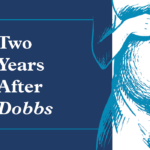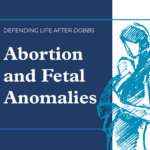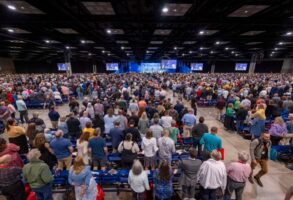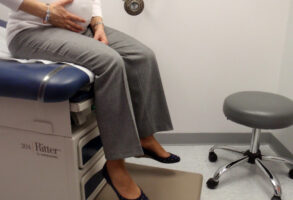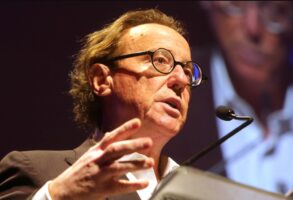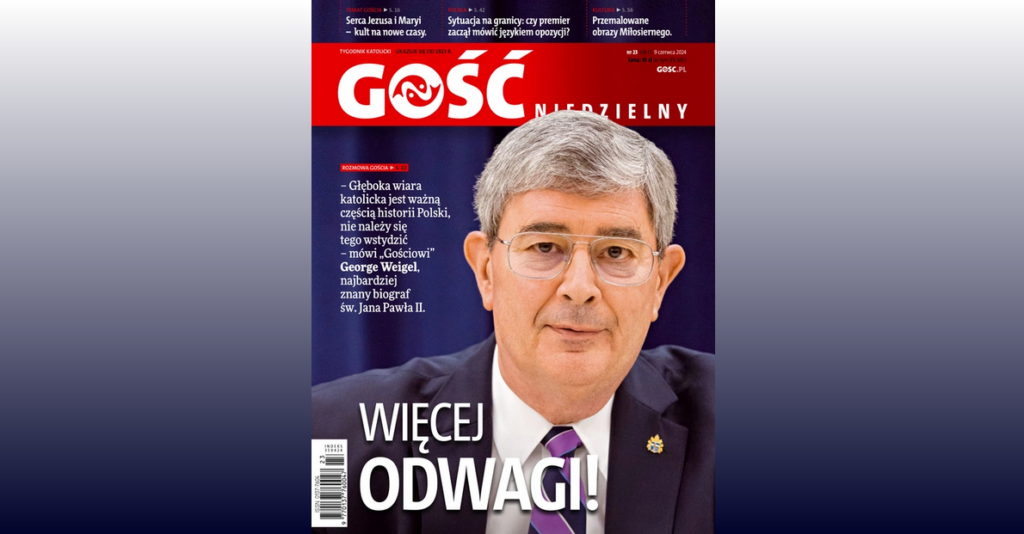
Published June 9, 2024
Interview with George Weigel (Distinguished Senior Fellow and William E. Simon Chair in Catholic Studies: Ethics and Public Policy Center)
Rafał Skitek (Gość Niedzielny): Who is John Paul II for you?
George Weigel: He is a saint of the church, a man of great holiness who lived a life of remarkable integrity: a seamless garment in which soul, heart, and mind were thoroughly integrated. He was also the emblematic figure of the second-half of the 20th century: the drama of his life summed up the human drama of the second-half of the 20th century. And in a singular way he pointed the world toward a better future. When I think about him, I also think about a friend whom I knew over fifteen years and who marked my life in an indelible way.
Was he for you more friend or father?
He was more friend, actually.
Is that why you decided to write a biography of John Paul II? Did you want to repay your debt of gratitude, as it were?
I wanted to tell the full truth about him. Previous biographies had not gotten him right because they looked at him primarily as a political actor. And I wanted to present him as someone who was a radically converted disciple of Jesus Christ. John Paul II prayed his way into all his great decisions. And that is why the first part of the book Witness to Hope, which is itself the first of a two-volume biography, is simply called “The Disciple.” Because that’s who he was, and he has to be understood in those terms.
Was it easier to write such a biography from a more distant, American perspective?
I think that I had enough distance on this to be objective, to be fair. I do think it is time for the Church in Poland to stop being so emotional about John Paul II and to start looking into the future through the eyes of his teaching, and particularly in terms of the New Evangelization. Poland is now in a position that it has not been in for centuries. No one in Poland in 30 years from now will be able to answer the question, “Why are you Catholic?” by saying “Well, of course I’m Catholic because I’m Polish.” That’s why in Poland today the Gospel has to be proposed. People have to accept the Lord personally; they have to meet him and become friends with the Lord Jesus Christ. The Church has to recognize this. Polish bishops have to recognize this. Priests have to recognize this. Everyone has to recognize this. Polish seminaries have to be reformed in order to prepare priests to be missionary disciples who will form the laity to be missionaries and witnesses of the Gospel in the world.
You say that’s necessary and – if I understand well – at the same time urgent. The question is: how should we do it?
You might have a look at the United States, where these problems have been addressed for some 25 – 30 years now; where seminaries have been reformed; where recruitment into both diocesan seminaries and consecrated life has been reformed; and where we have an enormous number of lay initiatives that are advancing the New Evangelization, such as FOCUS missionaries (young people on university campuses) and the Saint Augustine Institute, which produces effective catechetical tools for adult Christian education. I hope this doesn’t sound too boastful. We have lots of problems in the US, but we have taken the New Evangelization seriously and there are some models to be followed there.
I guess that even if you underline the important role of the Church in Poland you also see weaknesses and sins of Polish Catholicism, doesn’t?
I think there are many admirable things about Catholicism in Poland, including a deep popular piety that is very impressive. There are impressive campus ministries, e.g. the Dominicans’ Beczka in Cracow. But I have to say that I think the Polish bishops have not been as effective as they could have been in responding to the abuse issue. Yes, there are media exaggerations; and there are attempts – what I call “weaponizing” the abuse crisis – to conduct an overall campaign against the Church. But the abuse crisis and the problems it has exposed are our crisis, and the victims of it need our help. The Church must also be transparent, which is essential to restoring the credibility of the Church. Now it took us 20 years to learn this in the US, but we have learned it and I think that lesson needs to be learned better here.
Do you also have in mind cooperation between the Church and the government?
I think a number of bishops made a very serious mistake by identifying the Church too closely with a single political party. It doesn’t matter what the political party is, whether it’s Platforma Obywatelska, PiS or whatever. The Church never benefits from being perceived as the chaplain to a political program. That turns the Gospel into a political program, which is exactly what John Paul II criticized in certain forms of liberation theology in Latin America. It’s not good for the Church to be allied with any political party, left, right, center.
This year we celebrate 45th anniversary of John Paul II’s first pilgrimage to Poland. How should we celebrate that visit?
First of all, I think the Polish Church should recognize that, over the last 30 years, more should have been accomplished here; there is too much nostalgia for John Paul II and not enough wrestling with the question, “How do we make his legacy the engine of growing the Church into the future?”
That being said, it’s important to remember that those were nine days on which the history of the 20th century pivoted in a better direction. What did John Paul do? He ignited a revolution of conscience in which people became determined to live in the truth — and out of that came the Solidarity movement and, after 10 years, the revolution of 1989. So on this anniversary we should reflect on the fact that truth, including Christian truth, is liberating. An intense Catholic faith is an important part of the history of Poland. Don’t be embarrassed by that.
Was John Paul II’s first visit to Poland the most important for the Church in our nation? Why?
1979 set the pattern of self-liberation through living in the truth. The 1987 and 1997 visits laid down the requirements for living freedom nobly.
And looking at the entire teaching of John Paul II to Poles, what seems to be the most important to you and timeless?
It’s not so much a question of what John Paul II taught that is most important and timeless for Poles, but of what he taught that is most important and timeless for everyone. And that is that Jesus Christ is the answer to the question that is every human life.
My impression is the American Catholics are not ashamed to talk about God in public sphere; they see the necessity to build a civil society and democracy on Christian values. Catholics in Poland are afraid more often, to be present/active in a public life.
I have far more detailed knowledge of my own country than of Poland, but I think you’re right that perhaps the Polish Church has never found a vocabulary to express its convictions in a way that people across the social spectrum can engage. The bishops of the United States were immensely important figures in the pro-life movement, but for 50 years, they never made explicitly Catholic arguments in defense of the unborn. They made two points: The product of human conception is a human being with a unique genetic identity; that is not a theological speculation or a philosophical proposition, but a biological fact that we learn in high school. The second point is that in a just society, in a rightly ordered society, innocent human life is protected in law. Those are the only two things you need to know to understand why abortion is wrong. Now those arguments have to be complemented by compassionate care for women in crisis preferences. Over the past 50 years there have been built in the United States more than 3000 crisis pregnancy centers where women can find something better than a technological fix to their dilemma: They can find help in bringing the child to birth and in providing for the child after birth. So in the pro-life movement, anywhere, let’s figure out how we can serve women in crisis and provide legal protection for the unborn. In this way we may appeal to whatever higher and nobler instincts of people have not been completely snuffed out by postmodern culture. In the post-Christian environment in which we find ourselves, in which every traditional authority is held suspect, it is not feasible for the Church to enter the public sphere saying: “Do this because the Church says you should do it.” That won’t be “heard,” and it will often make matters worse.
What kind of ideologies threaten us today? In Poland? In Europe? Which one is more dangerous: cultural or physical domination? LGBT, social media, or Putin?
Well, Putin is a huge problem, and the war in Ukraine is really a war for the future of the Western world. If Putin wins in Ukraine, then everybody is in grave danger and the verdict of history in the Cold War will have been reversed. That is not a good idea.
The weakness of the West in responding to not just Putin, but Iran, China, and other aggressive authoritarians has at least something to do with the deep cultural confusion that of the Western world now. I think there is also in the West a misunderstanding of how deeply sick a political culture Russia is, as demonstrated by polling figures on Russian support for Putin’s war.
Why is that the case?
There is a long history here, but in more immediate terms, Russia was never compelled to confront the wickedness of communism the way that Germany was compelled to come to grips with the wickedness of Nazism, or the way the Japanese were compelled to recognize that there was something very wrong with the form of militaristic nationalism that dominated Japan in the middle of decades of the 20th century. This very serious problem has been made much worse by the fact that the Russian Orthodox Church, at least its leadership, is thoroughly corrupt and is thus incapable of leading a moral reckoning and spiritual renewal in Russia.
You’ve mentioned a deep cultural confusion of the Western world now. Do you think about gender ideology?
I was glad that Dignitas Infinita said that gender ideology is deeply problematic; I’m not sure it said clearly enough why that’s the case. And it did not condemn as strongly as it should have certain “medical” practices with young people. To take a confused 10-year old and subject him or her to hormonal, or even worse, surgical alteration, is child abuse. And it should be called that.
And from the Catholic point of view, we have to recognize that gender ideology is a direct contradiction of biblical anthropology: of the revealed nature of the human person – male and female, complementary and fruitful. If the ideological notion of “gender fluidity” triumphs, there will be massive confusion and suffering. People who are suffering from gender dysphoria need help; they don’t need to be affirmed in their confusion. That is not compassion. I think this will be recognized in 15 or 20 years, when it’s clear that there are no positive mental health outcomes over the long term from so-called “transitioning.” That’s even beginning to be recognized now, but there is going to be an awful lot of damage done before this tide is reversed – the tide that tells us that freedom is sheer willfulness, and that I can be whatever I say I want to be, regardless of the biological facts of the matter.
Let me come back to the war in Ukraine, Russia’s aggression, and the Vatican’s reaction to the war. Even Pope Francis is criticized for unclear Vatican policy…
I’ve been writing for years that the Vatican has taken an unhelpful line on Ukraine. They have misunderstood the nature of the Russian Orthodox leadership and its role in the war. And they hold fast to the mistaken ecumenical idea that the road to ecumenical progress with Constantinople and to healing the fracture of the 11th century runs through Moscow. That is absurd. Ecumenical Patriarch Bartholomew and Russian Patriarch Kyrill are not even in full communion with each other; so how can Moscow lead Rome to Constantinople?
John Paul II would have acted differently?
Yes, he would have. He knew how much damage had been done to Russian Orthodoxy by its alliance with state power, and he would have understood how Kyrill’s alliance with Putin has made that ancient problem far worse.
So what should be the attitude of Francis and Vatican policy towards the war in Ukraine and Russia’s aggression?
Continuous, vigorous condemnation of Russian aggression is a moral imperative.
Thank you very much!
George Weigel, Distinguished Senior Fellow of the Ethics and Public Policy Center, is a Catholic theologian and one of America’s leading public intellectuals. He holds EPPC’s William E. Simon Chair in Catholic Studies.
